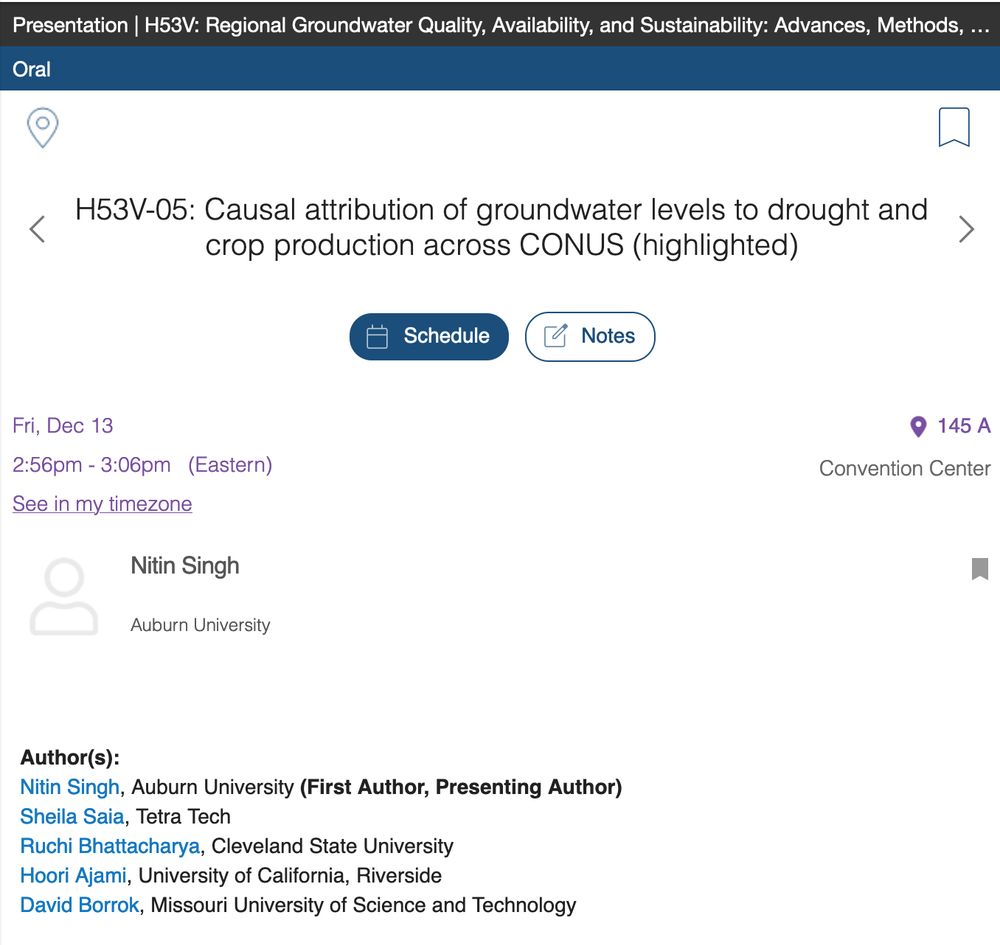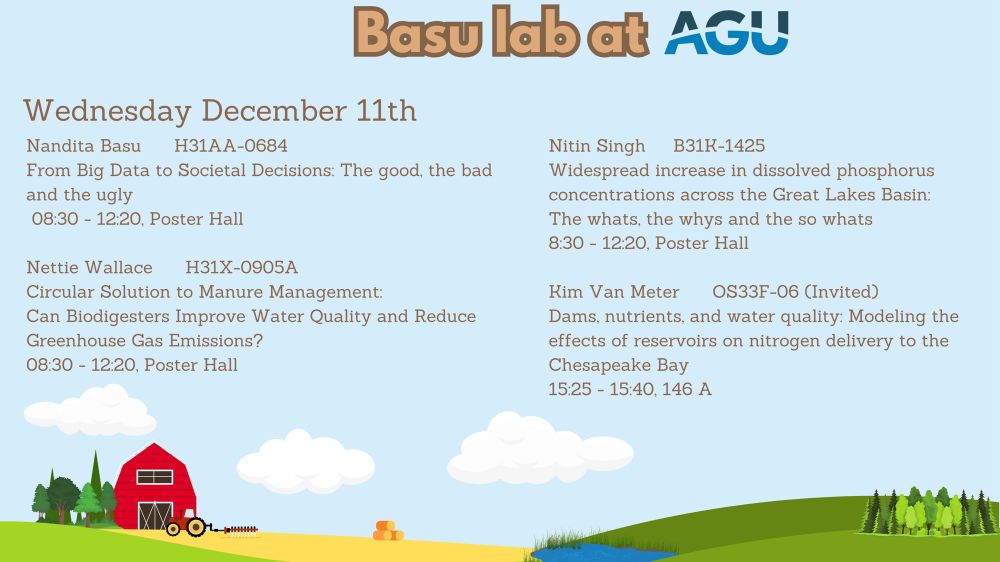Julie Mai
@julieeemai.bsky.social
780 followers
630 following
27 posts
Research Associate Prof @UWaterloo | water, data & computers | creator of https://bsky.app/profile/caspar-data.bsky.social & https://HydroHub.org | sensitivity analyses are my jam | she/her
Posts
Media
Videos
Starter Packs
Reposted by Julie Mai
Reposted by Julie Mai
Reposted by Julie Mai
Frederik Kratzert
@kratzert.bsky.social
· May 27
Reposted by Julie Mai
Nandita
@nanditabasu.bsky.social
· May 5
Julie Mai
@julieeemai.bsky.social
· Apr 17

Research Software Engineer/Scientist | Nandita Basu
We are looking for a Research Software Engineer/Scientist to work between Juliane (Julie) Mai and myself on watershed, water quality, wetlands and modeling, from the watershed to regional and global s...
www.linkedin.com
Julie Mai
@julieeemai.bsky.social
· Apr 17

Research Software Engineer/Scientist | Nandita Basu
We are looking for a Research Software Engineer/Scientist to work between Juliane (Julie) Mai and myself on watershed, water quality, wetlands and modeling, from the watershed to regional and global s...
www.linkedin.com
Reposted by Julie Mai
Reposted by Julie Mai
Nemiah Ladd
@nemiahladd.bsky.social
· Feb 26

Universität Basel: Geschäftsführer*in Departement Umweltwissenschaften
Die Universität Basel ist die älteste Universität der Schweiz und eine Hochschule von internationalem Ruf, die in Forschung und Lehre hervorragende Leistungen erbringt. Das Departement Umweltwissensch...
jobs.unibas.ch
Reposted by Julie Mai
Julie Mai
@julieeemai.bsky.social
· Jan 9
Julie Mai
@julieeemai.bsky.social
· Dec 17
Reposted by Julie Mai
Daniel Klotz
@danklotz.bsky.social
· Dec 15

The value of failure: Learning from what didn’t work
“What failure prepared you for later success?” Tim Ferriss often asks this question to the high-performing guests on his podcast, giving them the opportunity to reflect on how setbacks have shaped the...
blogs.egu.eu
Reposted by Julie Mai
Reposted by Julie Mai
Reposted by Julie Mai
Reposted by Julie Mai
Reposted by Julie Mai
Reposted by Julie Mai
Reposted by Julie Mai
Reposted by Julie Mai
Reposted by Julie Mai
Frederik Kratzert
@kratzert.bsky.social
· Dec 11
Julie Mai
@julieeemai.bsky.social
· Dec 11
Reposted by Julie Mai
Danyka Byrnes
@danykabyrnes.bsky.social
· Dec 11




















